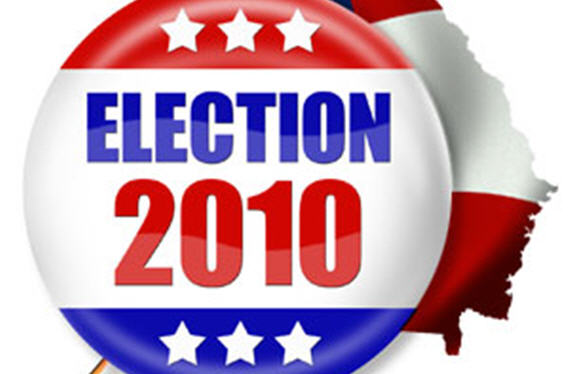Charlie Cook: The Senate Is In Play
For most of the year, a GOP takeover in the Senate seemed beyond the realm of possibility. That's no longer the case.
Pollster and political analyst Charlie Cook is among the first to express publicly what many have been thinking privately. In addition to an excellent shot at taking control in the House, the GOP also has a better-than-expected opportunity to take over the Senate:
Suffice it to say that Republicans have a good shot of holding all their seats. If that’s true, then the GOP would need to win 10 Democratic-held seats to win the majority.
Turning to the Democratic-held seats, the open seats in Delaware, Indiana, and North Dakota are pretty much goners, and it appears increasingly remote that Sen. Blanche Lincoln can make a successful comeback in Arkansas. This would bring Democratic losses to four.
For much of this year, it seemed a near mathematical impossibility that Republicans could score the 10-seat net gain needed to flip the Senate, which is split between 59 Democrats (including two independents who caucus with Democrats and largely vote with the party) and 41 Republicans. As recently as six weeks ago, I wrote in a CongressDailyAM column that a GOP win was “certainly possible” but “still fairly unlikely.” Although the “fairly unlikely” part is still valid, the possibility of a GOP takeover is growing.
If I had to make a wager today, I would bet that the open seats in Illinois and Pennsylvania will also fall to Republicans, although both races remain quite competitive and are hardly over. If my hunch is correct, Republicans would gain six seats. That brings us to Democratic incumbents Michael Bennet (Colorado), Barbara Boxer (California), Russell Feingold (Wisconsin), Patty Murray (Washington), and Harry Reid (Nevada), who are all roughly even-money bets. Boxer, Murray, and Reid have statistically insignificant leads over their challengers, while Bennet and Feingold trail their opponents by similarly insignificant margins.
In Connecticut, where the seat is open, Democrats are watching their once huge lead erode rapidly. Some Republicans are also eyeing the West Virginia open seat, noting that President Obama’s job-approval ratings in the Mountaineer State are among his lowest in the country, and they speculate it could get interesting as Democratic Gov. Joe Manchin pivots from state issues to more polarizing and ideological national ones.
With this many races in play, Democrats may have to perform triage and focus their resources on those that remain winnable. That means giving up on the rest.
Of the 18 competitive Senate races (this number doesn’t include Vitter, Burr, or the seat in West Virginia), Republicans would need to win 16 to secure a majority, and certainly logic suggests that the odds of achieving this would be long in any remotely normal year. But the operative term is “in a normal year,” which this is most certainly not.
Even if Republicans don’t win the sixteen races they need, of course, they’ve got a very good shot at coming very close and changing a Senate currently divided 59-41 to one where the breakdown is something like 52-48, which would give the GOP significantly more bargaining power in the upper house than they have today. Whether that will lead to nothing more than partisan gridlock (an outcome I don’t necessarily find disappointing) or, after a time, actual political compromise remains to be seen.







Although the “fairly unlikely” part is still valid, the possibility of a GOP takeover is growing.
Yeah, well it is also “fairly unlikely” that the Dems will lose only 1-3 seats – although not at all impossible. As Cook points out, beyond the 4 most likely Dem losses, the other races are all pretty close, and would seem to be going GOP only on the basis of “hunches” and extrapolations of tendencies. It is more probable that the Dems will win those races. As for the “core 4” – DE is increasingly on the table, especially if the teabaggers bring down Castle in the primaries. As for the GOP seats, Cook breezily assumes that they are all safe, but that is not at all true. Conway has a very good shot of taking KY, Crist has an excellent chance in FL (and one assumes he will caucus with Dems), and MO and OH are also very much in play.
Cook is basing all his persistent doom and gloom for the Dems on projections of what would happen if certain trends continue. He is extrapolating from today to some future time with the assumption that nothing significant will intervene. But there will be, of course, something that intervenes – mainly a fully engaged campaign. For two years the Republicans have been campaigning relentlessly against Obama and the Dems – for the next two months it will be more of an even fight.
Anyway, it is interesting that speculation about the outer limits of the possible in one direction (the pro-GOP direction) is fodder for tons of articles and blog posts, but equally speculative explorations of the other limit of the possible is completely ignored.
I’m curious as to why you shrug off partisan gridlock. As a liberal who usually votes Dem, I’ve resigned myself to a Republican take-over (and am even willing to listen to all the crowing when it happens), but I don’t see how “partisan gridlock” helps the country out. Sure, it may help one party over the other, but such political maneuverings rarely result in good policy.
See Obamacare.